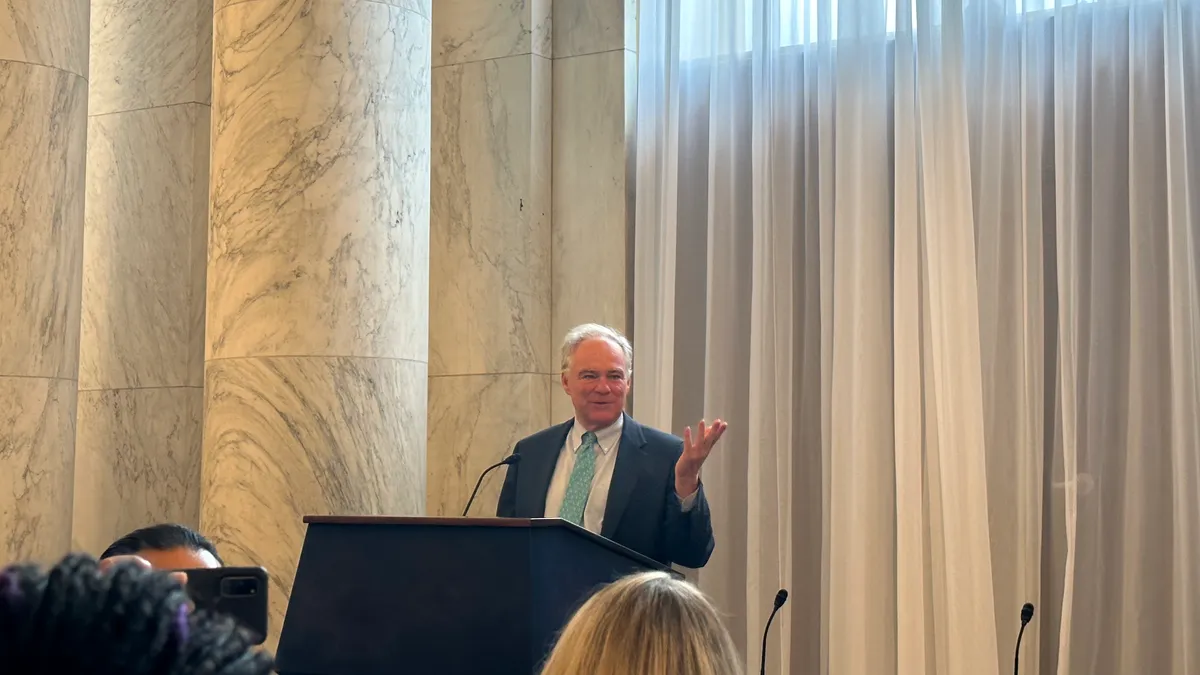Dive Brief:
- Speaking at the National Skills Coalition’s summit on Wednesday, Sen. Tim Kaine (D-Va.) recommitted to championing learning and development through government funding.
- While the new bill isn’t ready to be introduced, Kaine told the crowd gathered in the Russell Senate Building’s Kennedy Caucus room, it will build on the work put forth by the bipartisan Digital Equity Act.
- According to the National Digital Inclusion Alliance, the Digital Equity Act makes the internet more accessible to people with disabilities, increases broadband access to rural populations and provides digital upskilling to low-income talent.
Dive Insight:
Citing the NSC stat that 92% of jobs require digital skills, Kaine underscored that this gap affects a wide variety of sectors, citing e-commerce software in the retail businesses, VR software, and healthcare and food-service operation centers.
“If you can close the digital skills gap in your own foundation — so, industry-specific skills — you will help businesses with turnover and help individual workers achieve greater economic success,” he said.
In his home state of Virginia, he called out manufacturing as an area increasingly requiring more digital skills in order to operate the equipment. Likewise, Kaine pointed to community colleges and other higher education institutions — especially ones that offer apprenticeship programs — as upskilling touchstones.
He also spoke about the 21st Century Workforce Partnerships Act, which will “advance the work started under the recent Digital Equity Act, by making specific and targeted investments in the digital workplace skills development.” It would establish “federal formula funding” and “competitive grants” for local institutions, Kaine continued, adding that he hoped to introduce the bill on Wednesday.
“We still have a little bit of work to do, to make it just right. And obviously, no need to rush,” Kaine said. “We are going to do this.














